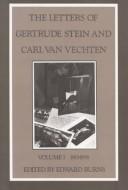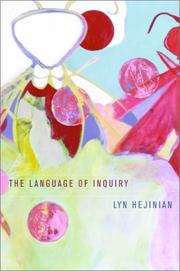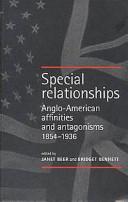| Listing 1 - 10 of 21 | << page >> |
Sort by
|
Book
Year: 2021 Publisher: Brooklyn, NY punctum books
Abstract | Keywords | Export | Availability | Bookmark
 Loading...
Loading...Choose an application
- Reference Manager
- EndNote
- RefWorks (Direct export to RefWorks)
Geographies of Identity: Narrative Forms, Feminist Futures explores identity and American culture through hybrid, prose work by women, and expands the strategies of cultural poetics practices into the study of innovative narrative writing. Informed by Judith Butler, Homi Bhabha, Harryette Mullen, Julia Kristeva, and others, this project further considers feminist identity politics, race, and ethnicity as cultural content in and through poetic and non/narrative forms. The texts reflected on here explore literal and figurative landscapes, linguistic and cultural geographies, sexual borders, and spatial topographies. Ultimately, they offer non-prescriptive models that go beyond expectations for narrative forms, and create textual webs that reflect the diverse realities of multi-ethnic, multi-oriented, multi-linguistic cultural experiences.Readings of Gertrude Stein’s A Geographical History of America, Renee Gladman’s Juice, Pamela Lu’s Pamela: A Novel, Claudia Rankine’s Don’t Let Me Be Lonely, Juliana Spahr’s The Transformation, Theresa Hak Kyung Cha’s Dictée, Gloria Anzaldúa’s Borderlands/La Frontera, and Layli Long Soldier’s WHEREAS show how alternatively narrative modes of writing can expand access to representation, means of identification, and subjective agency, and point to horizons of possibility for new futures. These texts critique essentializing practices in which subjects are defined by specific identity categories, and offer complicated, contextualized, and historical understandings of identity formation through the textual weaving of form and content.
Book
ISBN: 0870705881 Year: 1970 Publisher: New York City : The Museum of Modern Art,
Abstract | Keywords | Export | Availability | Bookmark
 Loading...
Loading...Choose an application
- Reference Manager
- EndNote
- RefWorks (Direct export to RefWorks)
verzameling Gertrude Stein. --- Stein, Gertrude. --- Stein, Leo. --- Stein, Michael. --- Stein, Sarah. --- Matisse, Henri. --- Picasso, Pablo. --- Gris, Juan. --- Cone, Etta. --- Cone, Claribel.
Book
ISBN: 0823266362 0823262502 0823262499 0823262464 1322400644 Year: 2015 Publisher: Fordham University Press
Abstract | Keywords | Export | Availability | Bookmark
 Loading...
Loading...Choose an application
- Reference Manager
- EndNote
- RefWorks (Direct export to RefWorks)
Transferential Poetics presents a method for bringing theories of affect to the study of poetics. Informed by the thinking of Silvan Tomkins, Melanie Klein, and Wilfred Bion, it offers new interpretations of the poetics of four major American artists: Edgar Allan Poe, Henry James, Gertrude Stein, and Andy Warhol. The author emphasizes the close, reflexive attention each of these artists pays to the transfer of feeling between text and reader, or composition and audience— their transferential poetics. The book’s historical route from Poe to Warhol culminates in television, a technology and cultural form that makes affect distinctly available to perception. The peculiar theatricality of these four artists, Frank argues, can best be understood as a reciprocal framing relation between the bodily means of communicating affect (by face and voice) and technologies of graphic reproduction.
Poetics --- Semiotics. --- Semeiotics --- Semiology (Linguistics) --- Semantics --- Signs and symbols --- Structuralism (Literary analysis) --- History. --- Andy Warhol. --- Edgar Allan Poe. --- Gertrude Stein. --- Henry James. --- Melanie Klein. --- Silvan Tomkins. --- Wilfred Bion. --- affect. --- television. --- theatricality.

ISBN: 0231063083 0231064306 0231064322 Year: 1986 Publisher: New York Columbia University Press
Abstract | Keywords | Export | Availability | Bookmark
 Loading...
Loading...Choose an application
- Reference Manager
- EndNote
- RefWorks (Direct export to RefWorks)
Vechten, Van, Carl --- Stein, Gertrude --- Authors, American --- Ecrivains américains --- Correspondence --- Correspondance --- Stein, Gertrude, --- Van Vechten, Carl, --- -American authors --- -Van Vechten, Carl --- -Correspondence --- Ecrivains américains --- Vechten, Carl Van, --- Van Vetchen, Carl, --- Vetchen, Carl Van, --- Staĭn, Gertruda, --- Stein, Gertruda, --- Correspondence. --- Van Vechten (Carl). Brieven aan Gertrude Stein. --- Stein (Gertrude). Correspondance avec Carl Van Vechten. --- Van Vechten (Carl). Correspondance avec Gertrude Stein. --- Stein (Gertrude). Brieven aan Carl Van Vechten.
Book
Year: 2021 Publisher: Brooklyn, NY punctum books
Abstract | Keywords | Export | Availability | Bookmark
 Loading...
Loading...Choose an application
- Reference Manager
- EndNote
- RefWorks (Direct export to RefWorks)
Geographies of Identity: Narrative Forms, Feminist Futures explores identity and American culture through hybrid, prose work by women, and expands the strategies of cultural poetics practices into the study of innovative narrative writing. Informed by Judith Butler, Homi Bhabha, Harryette Mullen, Julia Kristeva, and others, this project further considers feminist identity politics, race, and ethnicity as cultural content in and through poetic and non/narrative forms. The texts reflected on here explore literal and figurative landscapes, linguistic and cultural geographies, sexual borders, and spatial topographies. Ultimately, they offer non-prescriptive models that go beyond expectations for narrative forms, and create textual webs that reflect the diverse realities of multi-ethnic, multi-oriented, multi-linguistic cultural experiences.Readings of Gertrude Stein’s A Geographical History of America, Renee Gladman’s Juice, Pamela Lu’s Pamela: A Novel, Claudia Rankine’s Don’t Let Me Be Lonely, Juliana Spahr’s The Transformation, Theresa Hak Kyung Cha’s Dictée, Gloria Anzaldúa’s Borderlands/La Frontera, and Layli Long Soldier’s WHEREAS show how alternatively narrative modes of writing can expand access to representation, means of identification, and subjective agency, and point to horizons of possibility for new futures. These texts critique essentializing practices in which subjects are defined by specific identity categories, and offer complicated, contextualized, and historical understandings of identity formation through the textual weaving of form and content.
USA --- Literary studies: from c 1900 --- -Social impact of disasters --- Gay & Lesbian studies --- Claudia Rankine;feminism;Gertrude Stein;Gloria Anzaldúa;Juliana Spahr;Layli Long Soldier;literary studies;Pamela Lu;queer theory;Renee Gladman;Theresa Hak Kyung Cha;United States of America --- Claudia Rankine;feminism;Gertrude Stein;Gloria Anzaldúa;Juliana Spahr;Layli Long Soldier;literary studies;Pamela Lu;queer theory;Renee Gladman;Theresa Hak Kyung Cha;United States of America

ISBN: 0520217004 0520216997 9780520216990 9780520217003 1597347000 0520922271 1282758748 9786612758744 9780520922273 0585389861 9780585389868 9781597347006 9781282758742 Year: 2000 Publisher: Berkeley University of California Press
Abstract | Keywords | Export | Availability | Bookmark
 Loading...
Loading...Choose an application
- Reference Manager
- EndNote
- RefWorks (Direct export to RefWorks)
Lyn Hejinian is among the most prominent of contemporary American poets. Her autobiographical poem My Life, a best-selling book of innovative American poetry, has garnered accolades and fans inside and outside academia. The Language of Inquiry is a comprehensive and wonderfully readable collection of her essays, and its publication promises to be an important event for American literary culture. Here, Hejinian brings together twenty essays written over a span of almost twenty-five years. Like many of the Language Poets with whom she has been associated since the mid-1970s, Hejinian turns to language as a social space, a site of both philosophical inquiry and political address. Central to these essays are the themes of time and knowledge, consciousness and perception. Hejinian's interests cover a range of texts and figures. Prominent among them are Sir Francis Bacon and Enlightenment-era explorers; Faust and Sheherazade; Viktor Shklovsky and Russian formalism; William James, Hannah Arendt, and Martin Heidegger. But perhaps the most important literary presence in the essays is Gertrude Stein; the volume includes Hejinian's influential "Two Stein Talks," as well as two more recent essays on Stein's writings.
Literature --- Poetics --- Poetry --- Technique --- Hejinian, Lyn --- Aesthetics. --- Poetics. --- academic. --- american literature. --- american poetry. --- american poets. --- autobiographical. --- collected works. --- consciousness. --- contemporary poetry. --- creative writing. --- enlightenment. --- essay collection. --- faust. --- female poets. --- gertrude stein. --- knowledge. --- language poets. --- literary analysis. --- literary criticism. --- literary culture. --- martin heidegger. --- modern poetry. --- perception. --- philosophy. --- poetry. --- political. --- politics. --- scheherazade. --- scholarly. --- sir francis bacon. --- time.
Book
ISBN: 022613752X 9780226137520 9780226306889 0226306887 Year: 2014 Publisher: Chicago
Abstract | Keywords | Export | Availability | Bookmark
 Loading...
Loading...Choose an application
- Reference Manager
- EndNote
- RefWorks (Direct export to RefWorks)
While Gertrude Stein hosted the literati of the Left Bank, Mrs. Bates-Batcheller, an American socialite and concert singer in Paris, held sumptuous receptions for the Daughters of the American Revolution in her suburban villa. History may remember the American artists, writers, and musicians of the Left Bank best, but the reality is that there were many more American businessmen, socialites, manufacturers' representatives, and lawyers living on the other side of the River Seine. Be they newly minted American countesses married to foreigners with impressive titles or American soldiers who had settled in France after World War I with their French wives, they provide a new view of the notion of expatriates. Nancy L. Green thus introduces us for the first time to a long-forgotten part of the American overseas population-predecessors to today's expats-while exploring the politics of citizenship and the business relationships, love lives, and wealth (and poverty for some) of Americans who staked their claim to the City of Light. The Other Americans in Paris shows that elite migration is a part of migration tout court and that debates over "Americanization" have deep roots in the twentieth century.
Americans --- History --- France --- Civilization --- American influences. --- left bank, seine, expats, expatriates, americans in france, paris, society, consulate, businessmen, mrs bates-batcheller, gertrude stein, daughters of the american revolution, wealth, rank, power, socialites, manufacturing, industry, lawyers, soldiers, military, postwar, aristocracy, marriage, gender, citizenship, belonging, nationality, national identity, business, love, romance, poverty, class, nonfiction, history, biography, profile, migration, immigration, homeland, divorce, work, profession, war, crime.
Book
Year: 2021 Publisher: Brooklyn, NY punctum books
Abstract | Keywords | Export | Availability | Bookmark
 Loading...
Loading...Choose an application
- Reference Manager
- EndNote
- RefWorks (Direct export to RefWorks)
Geographies of Identity: Narrative Forms, Feminist Futures explores identity and American culture through hybrid, prose work by women, and expands the strategies of cultural poetics practices into the study of innovative narrative writing. Informed by Judith Butler, Homi Bhabha, Harryette Mullen, Julia Kristeva, and others, this project further considers feminist identity politics, race, and ethnicity as cultural content in and through poetic and non/narrative forms. The texts reflected on here explore literal and figurative landscapes, linguistic and cultural geographies, sexual borders, and spatial topographies. Ultimately, they offer non-prescriptive models that go beyond expectations for narrative forms, and create textual webs that reflect the diverse realities of multi-ethnic, multi-oriented, multi-linguistic cultural experiences.Readings of Gertrude Stein’s A Geographical History of America, Renee Gladman’s Juice, Pamela Lu’s Pamela: A Novel, Claudia Rankine’s Don’t Let Me Be Lonely, Juliana Spahr’s The Transformation, Theresa Hak Kyung Cha’s Dictée, Gloria Anzaldúa’s Borderlands/La Frontera, and Layli Long Soldier’s WHEREAS show how alternatively narrative modes of writing can expand access to representation, means of identification, and subjective agency, and point to horizons of possibility for new futures. These texts critique essentializing practices in which subjects are defined by specific identity categories, and offer complicated, contextualized, and historical understandings of identity formation through the textual weaving of form and content.
Book
ISBN: 1282359924 9786612359927 0520944720 9780520944725 9780520260443 0520260449 9780520260436 0520260430 9781282359925 6612359927 Year: 2009 Publisher: CA University of California Press
Abstract | Keywords | Export | Availability | Bookmark
 Loading...
Loading...Choose an application
- Reference Manager
- EndNote
- RefWorks (Direct export to RefWorks)
Icons of Life tells the engrossing and provocative story of an early twentieth-century undertaking, the Carnegie Institution of Washington's project to collect thousands of embryos for scientific study. Lynn M. Morgan blends social analysis, sleuthing, and humor to trace the history of specimen collecting. In the process, she illuminates how a hundred-year-old scientific endeavor continues to be felt in today's fraught arena of maternal and fetal politics. Until the embryo collecting project-which she follows from the Johns Hopkins anatomy department, through Baltimore foundling homes, and all the way to China-most people had no idea what human embryos looked like. But by the 1950's, modern citizens saw in embryos an image of "ourselves unborn," and embryology had developed a biologically based story about how we came to be. Morgan explains how dead specimens paradoxically became icons of life, how embryos were generated as social artifacts separate from pregnant women, and how a fetus thwarted Gertrude Stein's medical career. By resurrecting a nearly forgotten scientific project, Morgan sheds light on the roots of a modern origin story and raises the still controversial issue of how we decide what embryos mean.
Embryology, Human --- Tissue culture --- Human reproductive technology --- Medical anthropology. --- Social aspects. --- 20th century american history. --- 20th century scientific history. --- baltimore foundling homes. --- biology. --- carnegie institute of washington. --- embryo babies. --- embryo collection. --- embryo production factory. --- embryology. --- fetal politics. --- gertrude stein. --- healthcare. --- icons of life. --- johns hopkins anatomy department. --- maternal politics. --- medial treatment. --- medical care. --- mount holyoke collection. --- ourselves unborn. --- pregnancy. --- pregnant women. --- science. --- scientific study. --- social artifacts. --- specimen collecting. --- united states of america.

ISBN: 0719058171 1847790127 1417569328 9781526137654 9781417569328 1526137658 1280733950 9781280733956 9780719058172 071905818X 9780719058189 9781847790125 Year: 2002 Publisher: Manchester : Manchester University Press,
Abstract | Keywords | Export | Availability | Bookmark
 Loading...
Loading...Choose an application
- Reference Manager
- EndNote
- RefWorks (Direct export to RefWorks)
Opening up readings of writers in the growing field of transatlanticism, this text discusses diverse and innovative interventions in the field of Anglo-American literary relations, revealing previously unresearched connections between writers on both sides of the Atlantic.
American literature. --- American literature - History and criticism. --- English literature. --- Literature, Comparative. --- American literature --- English literature --- Comparative literature --- English Literature --- American Literature --- English --- Languages & Literatures --- History and criticism --- American and English --- English and American --- English influences --- American influences --- Literature [Comparative ] --- 19th century --- 20th century --- Alfred North Whitehead. --- Bolton Whitman Fellowship. --- Britain's foreign policy. --- British governments. --- George Eliot. --- Gertrude Stein. --- Harriet Beecher Stowe. --- Henry James. --- Highland Clearances. --- Mark Twain. --- New England farm life. --- Picasso. --- Sarah Orne Jewett. --- Walter Scott. --- hegemonic US. --- post-Second World War British governments. --- transatlantic literary network. --- working-class portrait. --- History and criticism. --- American and English. --- English and American. --- English influences. --- American influences.
| Listing 1 - 10 of 21 | << page >> |
Sort by
|

 Search
Search Feedback
Feedback About UniCat
About UniCat  Help
Help News
News